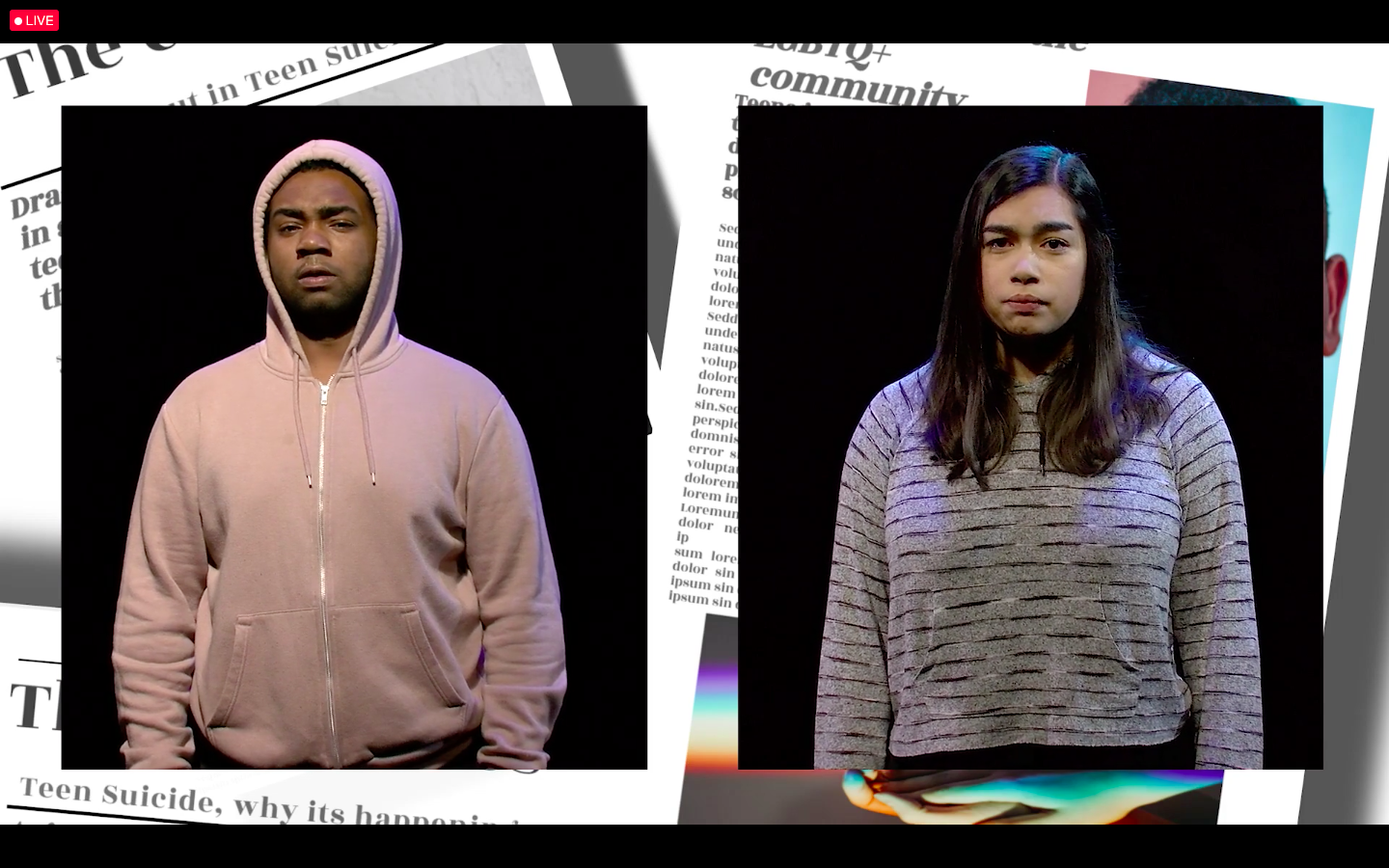The first play of the spring semester, “To Thine Own Self Be True: Gender, Sexuality, and the Bard,” presents an innovative version of Shakespearean classic plays and sonnets by adapting the characters into members of the LGBTQ community.
The first 25 minutes of the play consisted of actors providing a little background to Shakespeare’s work and how it was influenced by society’s neglect toward the LGBTQ community.
The first example was a brief interpretation of “Troilus and Cressida” a play that contains a few homophobic insults toward a male character.
Narrated by Fresno State students Deigo Barba, David Boutros and Emily King, the introduction hinted at the possibility of Shakespeare’s sexuality being either fluid or not completely heterosexual.
To exemplify this, Barba interpreted Shakespeare’s Sonnet 20 and emphasized how the speaker of the sonnet talks about “his lovely boy.”
Additionally, the play briefly highlighted how female characters were often portrayed as the property of their husbands and without a real voice.
“We will liberate some of Shakespeare’s characters from certain social restraints of the Elizabethan England,” Barba said before introducing the first scene.
Shakespeare’s classic “Romeo and Juliet” was transformed into a story of a same-sex couple, Romeo and Julius, played by Carlos Sanchez and Anthony Tenyenhuis respectively.
Sanchez’s performance was moving and unexpected as he recited most of his monologue in Spanish.
In this version of “Romeo and Juliet” Romeo is a migrant worker who fell in love with a landlord’s son, Julius.
The actors interpreted the famous balcony scene with only a bench and a ladder as their props. A green screen was placed behind them to simulate the day and night while also being accompanied by special sound effects.
One of the most moving scenes in the whole play was when King explained the history behind the Stonewall Riots from 1969.
In New York, police brutality against the LGBTQ community was constant forcing members of the community to rise against oppression.
During the play, eight actors stood a few feet next to each other and chanted a monologue dedicated to those who target the LGBTQ community.
In the monologue, actors ask people to realize that members of the LGBTQ community feel, suffer, bleed, love and enjoy just like any other person.
Therefore, they should be treated with equality and respect.
“The villainy you teach us, we will execute and it shall go hard. But we will better the instruction,” the actors chanted in defiance.
“To Thine Own Self Be True: Gender, Sexuality, and the Bard” informed the audience that 40% of the homeless youth population is represented by members of the LGBTQ community who are often kicked out of their homes because of their sexuality or sexual orientation.
To exemplify this, the play put another twist on “Romeo and Juliet” by showing the troublesome relationship between Juliet and her father Capulet.
In this modern version, Capulet wants to force Juliet into an arranged marriage without knowing that Juliet is in love with another woman.
When Capulet finds out Juliet’s secret, he gives her an ultimatum; either she marries a man or she gets kicked out of his house.
Brianne Avina’s interpretation of Juliet was extraordinary as she perfectly showed the pain that her character was enduring.
Joshua Clark’s performance of Capulet was impeccable.

Another emotive scene was the play’s interpretation of Hamlet.
In this version, two teens have been bullied by their classmates because of their sexuality.
Their speech, “To be, or not to be,” considers suicide as an option to end their pain.
Jimmy Haynie and Julia Prieto’s performance was incredibly touching as they teared up saying their lines.
The production also focused on Shakespeare’s “In The Tempest” by transforming it into a same-sex couple of two women who fall in love on a deserted island.
Shakespeares’s comedy “A Midsummer Night’s Dream” was transformed into the story of two male teens that were put into a spell and forced to fall in love with the first person they see, which happens to be a homosexual boy.
Transgender people were represented in the production with a monologue by Helena, a transgender woman played by Ethan MaGill who confesses her love to a male.
“Measure for Measure,” “Sonnet 144,” “Sonnet 138,” “Sonnet 130,” “Julius Cesar,” “Antony and Cleopatra” and “Prince Hal” were other Shakespearean works also portrayed during the play.
Although the play is based on Shakespeare’s works, the actors dressed in contemporary clothing and socially distanced from each other while performing.
This is the third production produced under federal and state health regulations since the pandemic.
The show had to be filmed without a live audience and when actors had to be closer than six feet, they wore disposable and cloth masks.
Compared to its predecessors, “To Thine Own Self Be True: Gender, Sexuality, and the Bard” is the most emotive and versatile production that the department has put on during the pandemic.
The 28 cast members concluded the play by repeating multiple times, “To thine own self be true,” as a way to encourage audience members to be true to themselves and hope for a better future.
The play will be available on ShowTix4U until Feb. 27.





